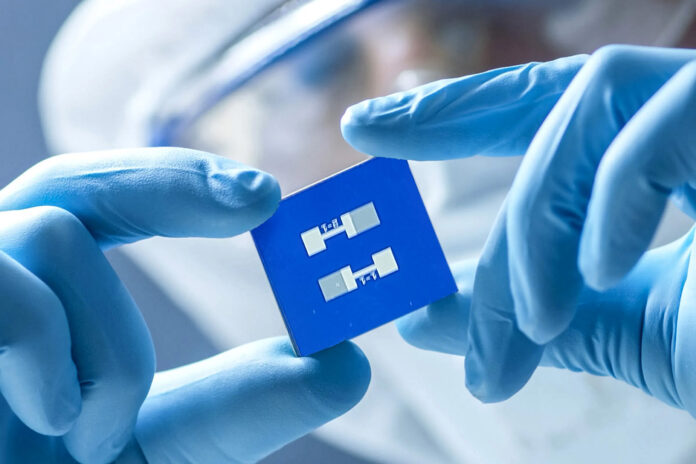Revolutionizing Protein Sensing
The biotech and pharmaceutical industries rely heavily on ELISA tests for quality control during drug development and manufacturing. However, these tests are time-consuming, requiring hours of work by trained technicians and specialized equipment, making them expensive and inaccessible to many.
The Problem with Current Protein Sensing Methods
ELISA tests can precisely quantify protein levels, but their high cost drives up the cost of drugs, putting research testing out of reach for many. The need for a faster, more affordable, and accessible protein-measurement tool is evident.
A New Technology Emerges
The Advanced Silicon Group (ASG), founded by Marcie Black, is commercializing a new technology that combines silicon nanowires with antibodies to create a highly sensitive measurement of protein concentration. This innovative sensor can measure the concentration of many different proteins and other molecules at once, with results available in under 15 minutes.
How it Works
Users simply place a tiny amount of solution on the sensor, rinse it, and insert it into ASG’s handheld testing system. The sensor uses the photoelectric properties of silicon nanowires to detect proteins electrically, making it a game-changer in the field of protein sensing.
The Impact on Healthcare
ASG’s sensor has the potential to lower the barriers in healthcare by making protein sensing faster and more affordable. This could dramatically increase the amount of biologic testing and creation, making it more viable for companies to develop drugs for rare conditions with smaller markets.
A Personal Story
Marcie Black, the founder of ASG, has a personal connection to the field of protein sensing. She grew up in a small town in Ohio and came to MIT for three degrees in electrical engineering. Her experience at MIT opened her eyes to the possibilities of using science and engineering to make the world a better place.
Applications Beyond Healthcare
ASG’s sensor has a wide range of applications beyond healthcare, including helping elite athletes train, understanding soil concentrations in agriculture, and developing new therapeutics. The company has received inquiries from a long list of people interested in using their sensors for various purposes.
Partnerships and Funding
ASG has worked with researchers to develop tests for biomarkers associated with lung cancer and dormant tuberculosis and has received multiple grants from the National Science Foundation, the National Institute of Standards and Technology, and the commonwealth of Massachusetts.
Conclusion
The Advanced Silicon Group’s innovative protein-sensing technology has the potential to revolutionize the field of biotech and pharmaceuticals. By making protein sensing faster, more affordable, and accessible, ASG’s sensor could lower the barriers to healthcare, increase the amount of biologic testing and creation, and make a significant impact on various industries. With its wide range of applications and potential for growth, ASG’s technology is an exciting development that could change the world.

